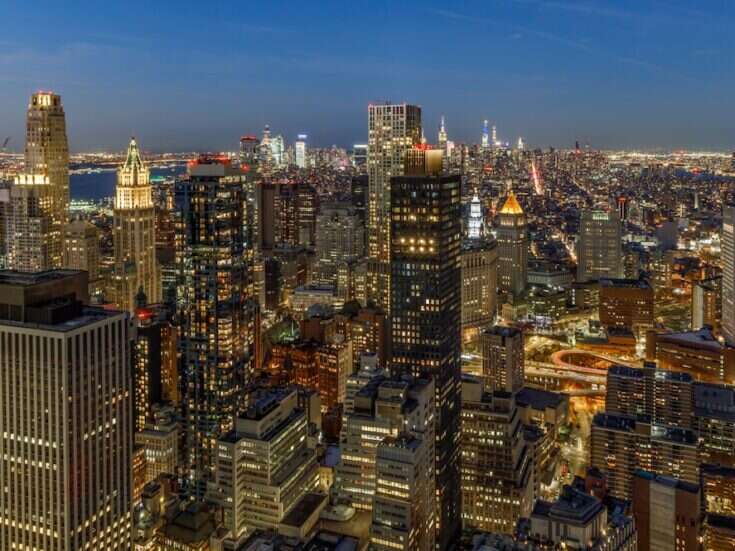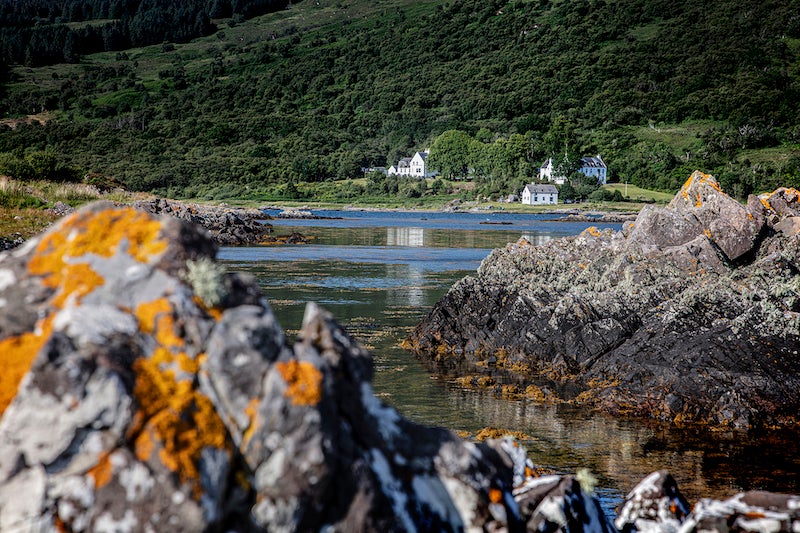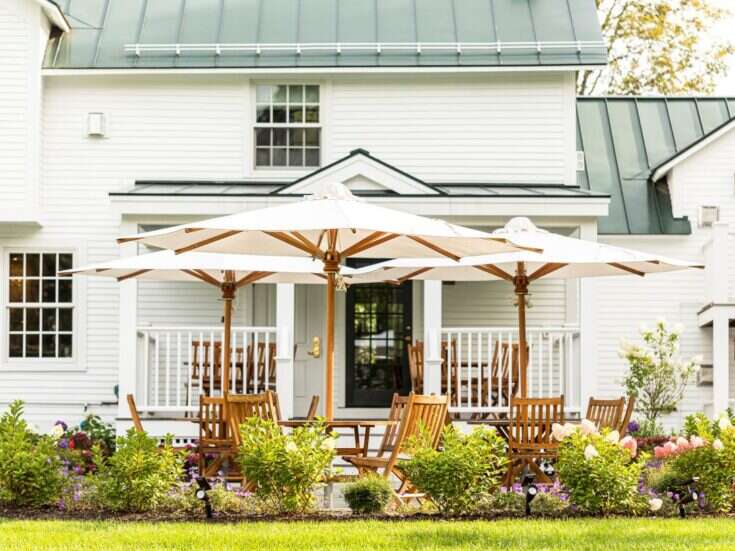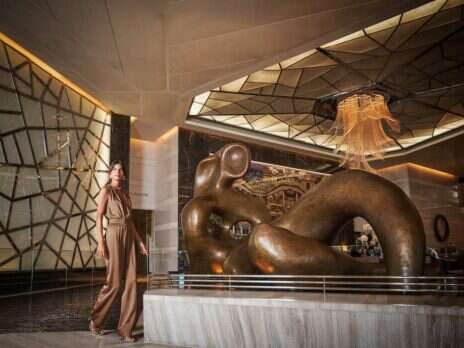As a speedboat bounces me across the clear blue waters of the Bay of Kotor towards an islet in the distance, I feel like James Bond heading out to a villain’s secret lair. But it’s not a remote hideout I’m visiting. My destination is Mamula Island, a former 19th-century fortress reborn as Montenegro’s latest luxury hotel, which I have the privilege of visiting before it officially opens its doors after a meticulous restoration.
Built in 1852 by Austro-Hungarian General Lazar Mamula to protect the bay from any would-be intruders, the fortress was never really used for its intended purpose. At the time, technology was developing so quickly that the fort soon became obsolete and, in the end, Mamula Island had a short life as a military base.
After a dark period during World War II when it was used by the Italians as a concentration camp under Mussolini’s regime, it was left abandoned, providing an occasional canvas for graffiti artists while the island itself was regularly used by locals, who would fish for squid and octopus in the surrounding waters.
Now the newest member of Design Hotels, Mamula Island has been sensitively brought back to life by architectural firm MCM London and Piotr Wisniewski of Berlin-based weStudio, who were tasked with reviving the protected building with minimal intervention.
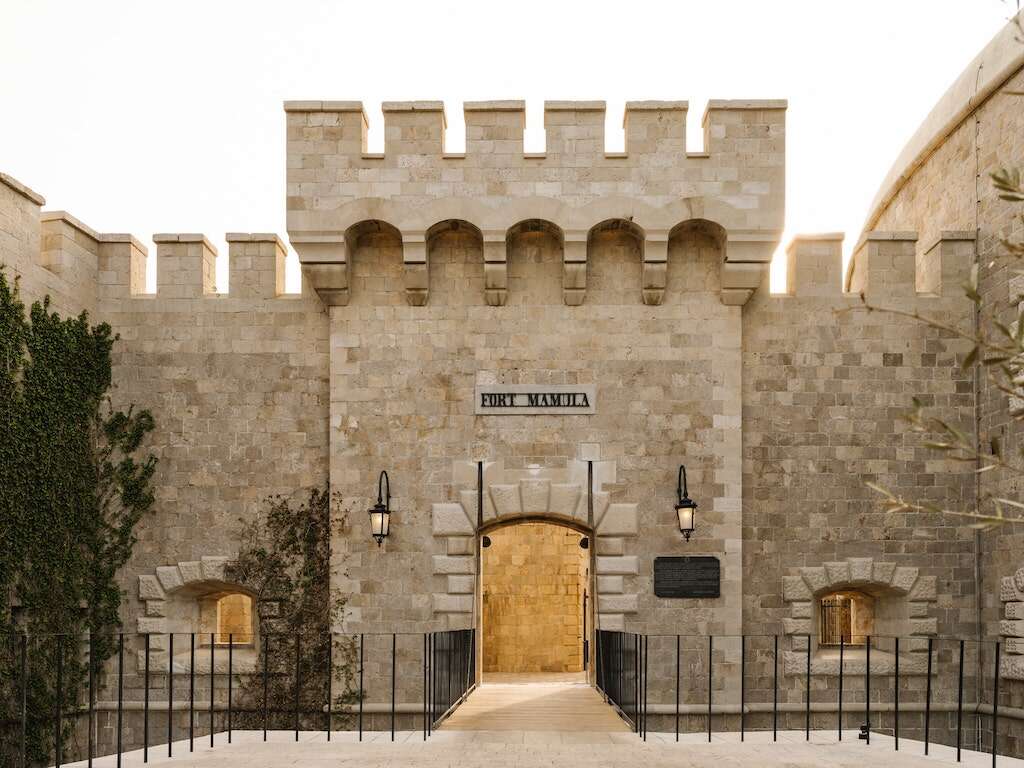
I checked into a newly constructed Garden Room, one of the few permitted additions to the stronghold, which comes with views of endless blue water as seen through the floor-to-ceiling windows, or even better, from a stand-alone tub in the marble-dressed bathroom.
The highest category Panoramic Suites, also newly built, will bag you the most space with a separate living room; a two-seat cinema room; and a private terrace with sunbeds for taking in the view by day, and a state-of-the-art telescope for making the most of it by night.
In Mamula’s heritage rooms, the Sky Suites and Sea Junior Suites, original features have been retained such as the stone fortress walls; vaulted ceilings; and in select rooms, decorative 19th-century frescoes that took nine months to restore.
Linking each space together is an earthy muted color palette, layers of natural materials and the curved lines of bespoke furnishings that nod to the fort’s horseshoe structure and rotund tower. An eclectic mix of accessories also tell a story, from the locally crafted ceramics and vintage Egyptian rugs to the contemporary photographs of Mamula and beyond by Mark Anthony Fox.
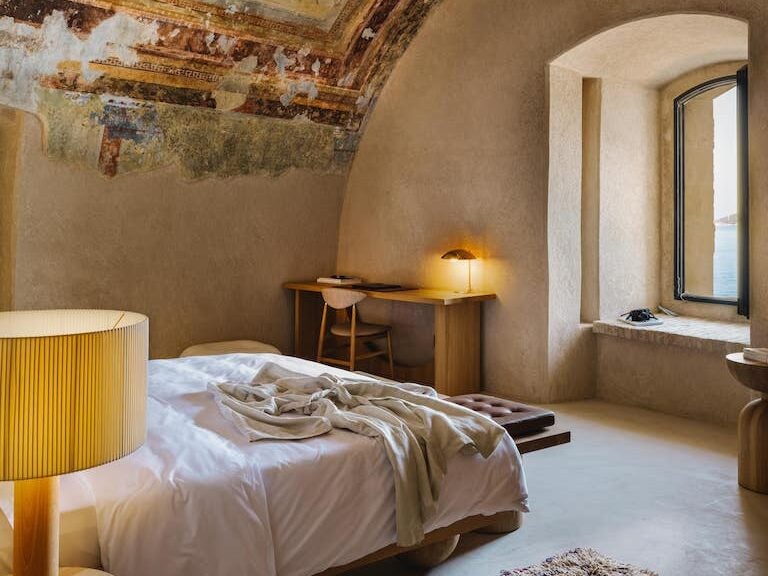
As my sneak peek of the hotel means arriving before the planned excursions are up and running (watch this space for boat rides to the nearby Blue Grotto and hikes along the mainland), I immerse myself fully in being stranded on a (luxury) desert island. At Mamula, this means spa time, and plenty of it.
Found on the ground floor of the main tower, the spa’s 360-degree experience takes places in soothing ritual rooms set around The Atrium, an interior courtyard-turned-lounge area, now covered by a glass dome and decorated with lush plants and a communal table crafted from a 400-year-old oak found in a river in Serbia.
I skipped the gym, although the sleek wooden gym equipment is so stylish I was nearly tempted, and booked in for a Lazy Pilates class held under a stone vaulted ceiling. Counting squats to the sound of crashing waves certainly beats my usual at-home workout and, weather permitting, classes can also be held on Mamula’s outdoor platform for a full sea view.
Yoga classes, sound healing, saunas and a salt room are also on the menu — Mamula is all about R&R — as are massages and facials courtesy of premium natural Swiss skincare brand ananné, which harnesses the power of many plants grown locally in Montenegro.
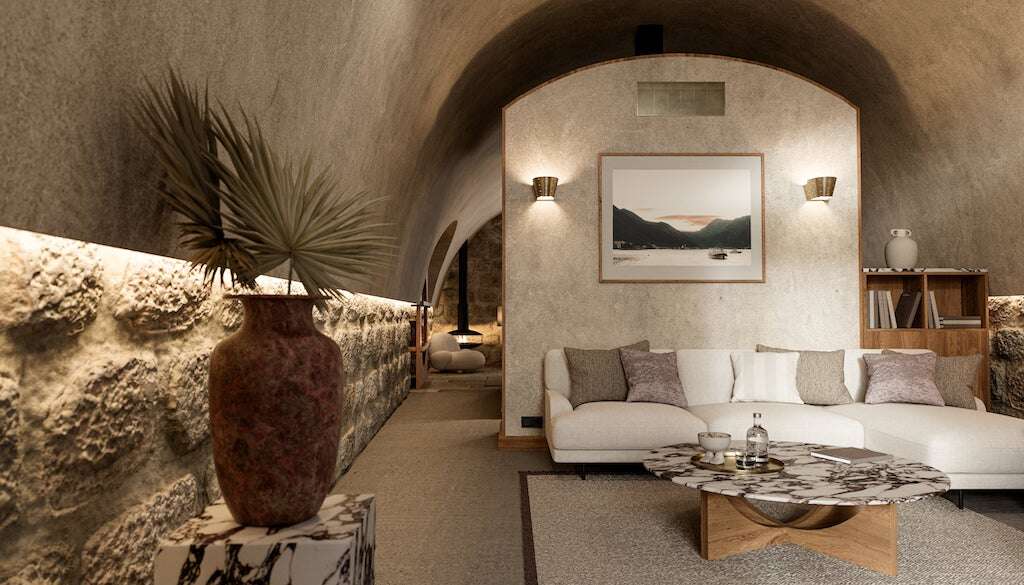
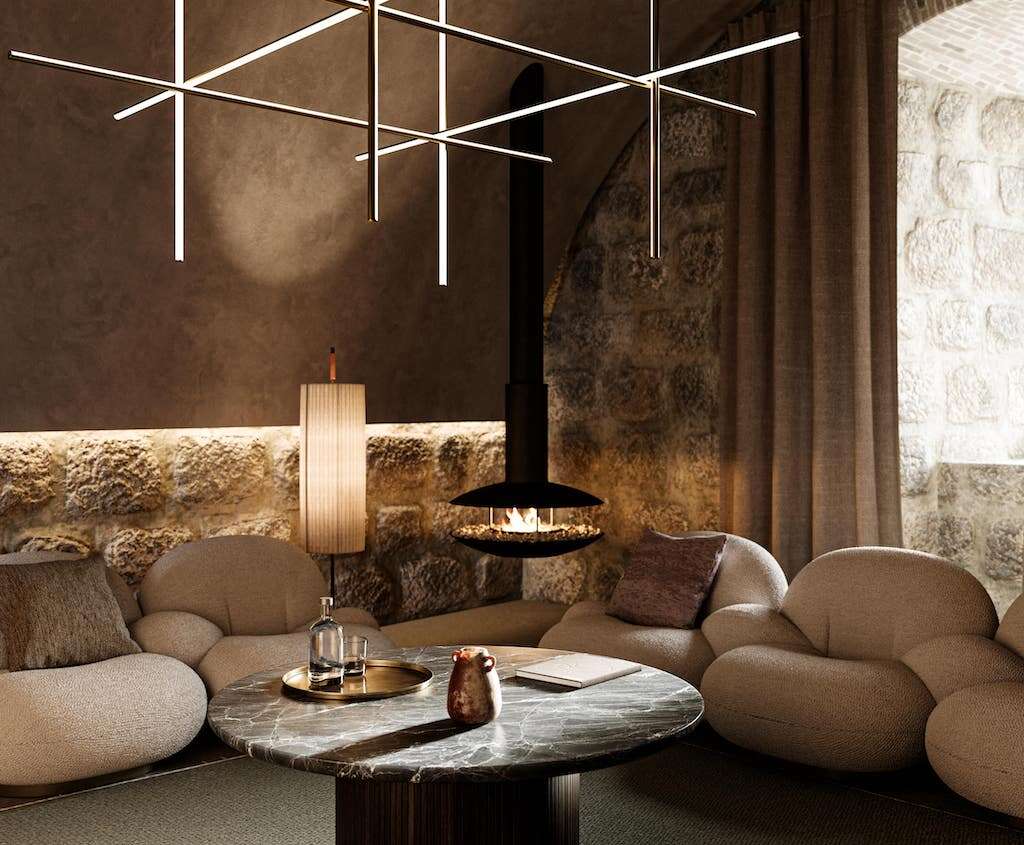
Signature treatments have been designed exclusively for Mamula and incorporate tools such as face and body brushes and textured stones to effectively exfoliate, massage and detox, or at least try and balance out time well spent in the hotel’s three restaurants.
Mamula Island has set the bar high by tapping executive chef Erica Archambault, who previously oversaw the kitchens at Paris’ notoriously difficult-to-reserve, one-Michelin-star restaurant Septime and its sister restaurant, the seafood-driven Clamato.
The appointment of a female chef in the historically male-dominated Balkan kitchens has ruffled a few feathers, and it might ruffle a few more by the time the season is in full swing and word of Archambault’s cuisine gets around.
Blending classic French techniques with seasonal Montenegrin ingredients — Archambault was enthusiastically out foraging on the mainland long before the hotel opened — looks set to achieve her goal of making Mamula a culinary destination well worth crossing water for.
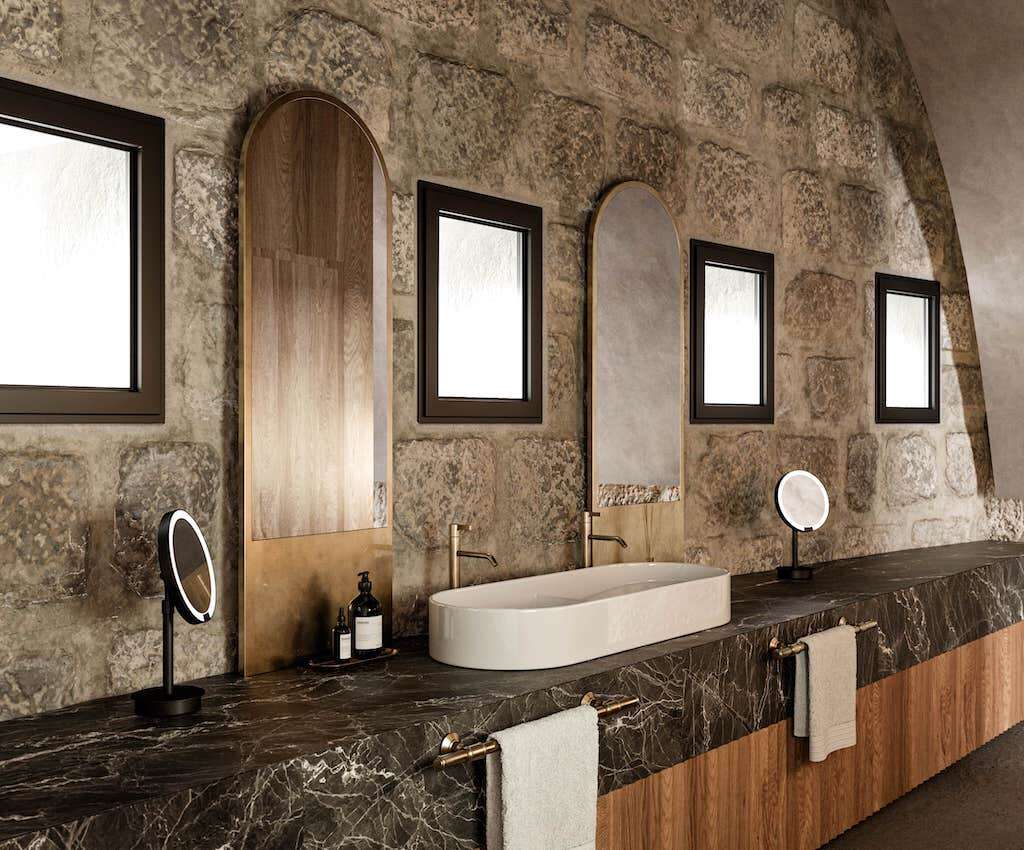
Breakfast feasts start the day with local cheese and honey, homemade croissants, and marmalade and strawberry jam so good that I asked for the recipe, while the ever-changing seasonal menus showcase Archambault’s creativity, whether it’s her twist on the classics at the relaxed pool deck (think catch-of-the day carpaccio and perfectly cooked steaks) or the inventive six-course tasting menu at fine-dining Kamena, accompanied by an excellent selection of Balkan wines.
When the weather heats up — unfortunately, not until after I leave — balmy summer evenings can be spent on the sun deck, lingering over light local seafood and easygoing sourdough pizzas, glass of rosé in hand. I guess missing it just gives me yet another reason to come back.
Suites from $770 per night. Contact Milena Dragojević, assistant manager, m.dragojevic@mamulaisland.com, +382 671 463 03, mamulaisland.com
This article appears in the 05 Jun 2023 issue of the New Statesman, Summer 2023
